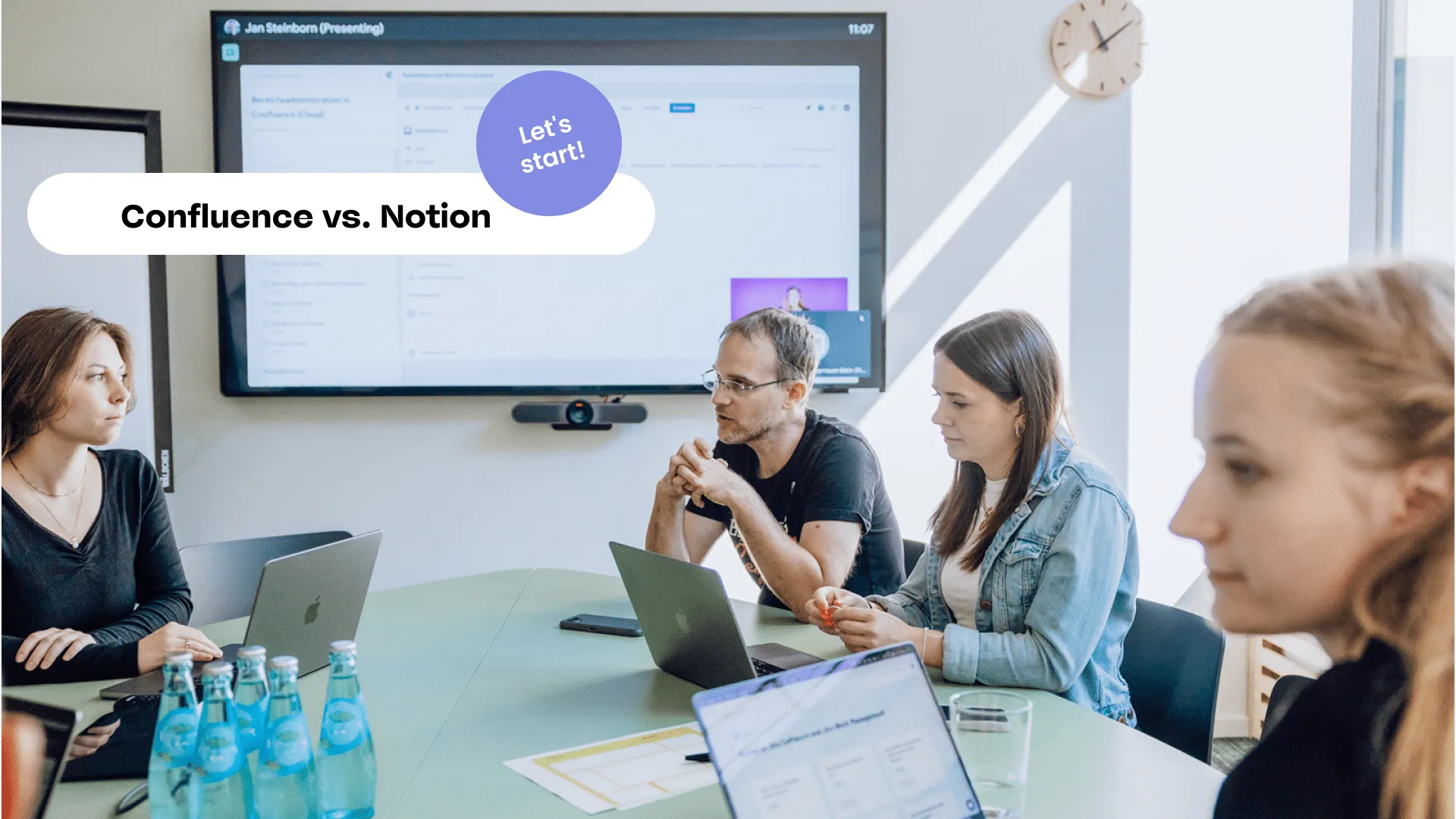Teams today need effective collaboration and knowledge management tools to stay organized, productive, and on the same page. Two of the most popular options are Confluence and Notion, both offering unique approaches to managing workflows, documentation, and team collaboration. But which tool is right for your team? In this guide, we’ll compare Confluence vs. Notion in terms of features, integrations, pricing, and use cases, helping you make an informed decision for your organization.
Confluence vs. Notion
Confluence is an enterprise-grade collaboration platform developed by Atlassian. It’s designed to help teams create, share, and manage knowledge in a centralized workspace. Confluence offers structured content types, robust permissions, and seamless integration with other Atlassian tools like Jira, making it ideal for companies that prioritize scalable workflows and long-term knowledge retention.
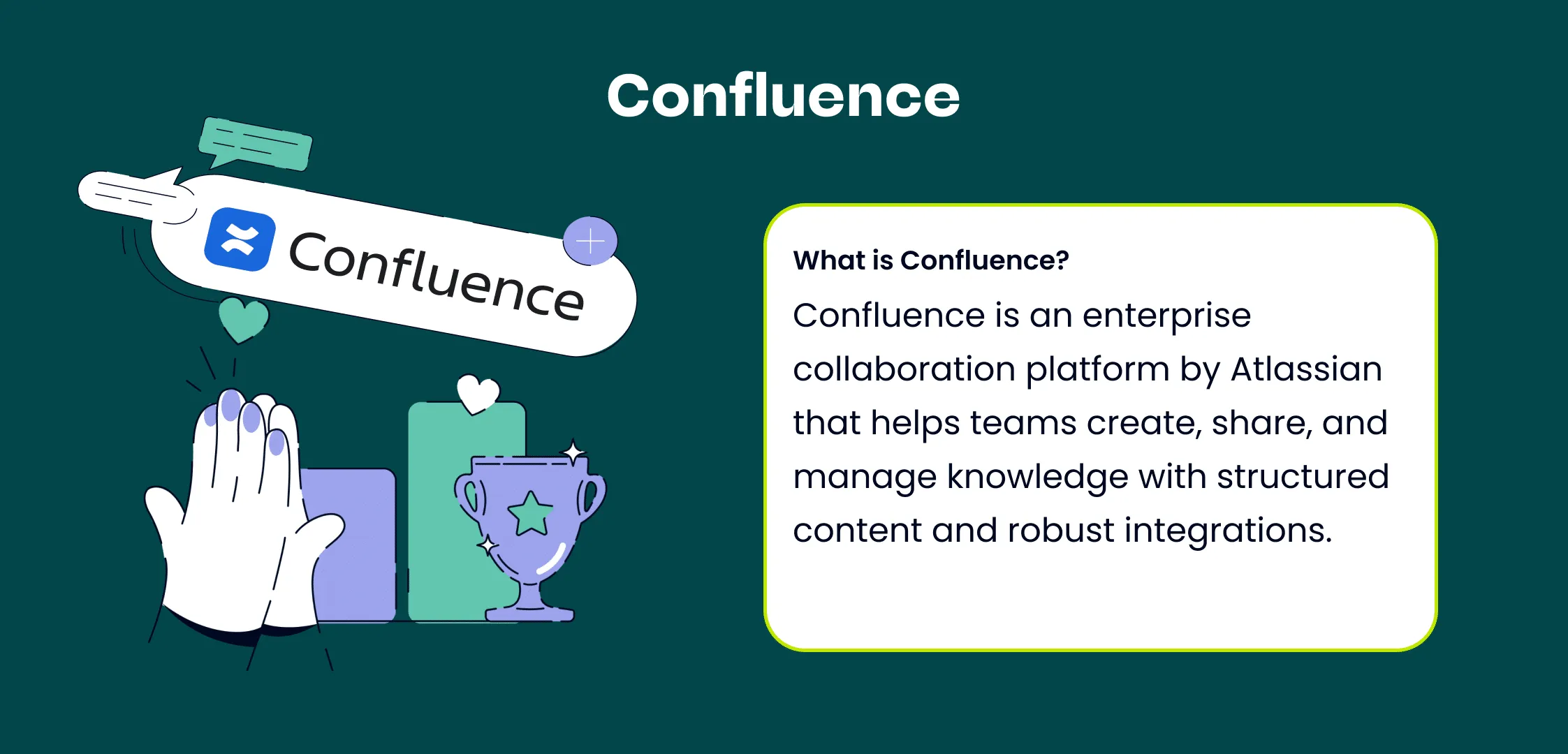
Notion, on the other hand, is a versatile productivity tool that combines note-taking, task management, databases, and wikis in a single interface. Notion excels at personal productivity and small team collaboration, providing flexibility for users to build customized workflows. While it’s highly adaptable, Notion can sometimes fall short when it comes to enterprise-level scalability and robust integration with other business systems.
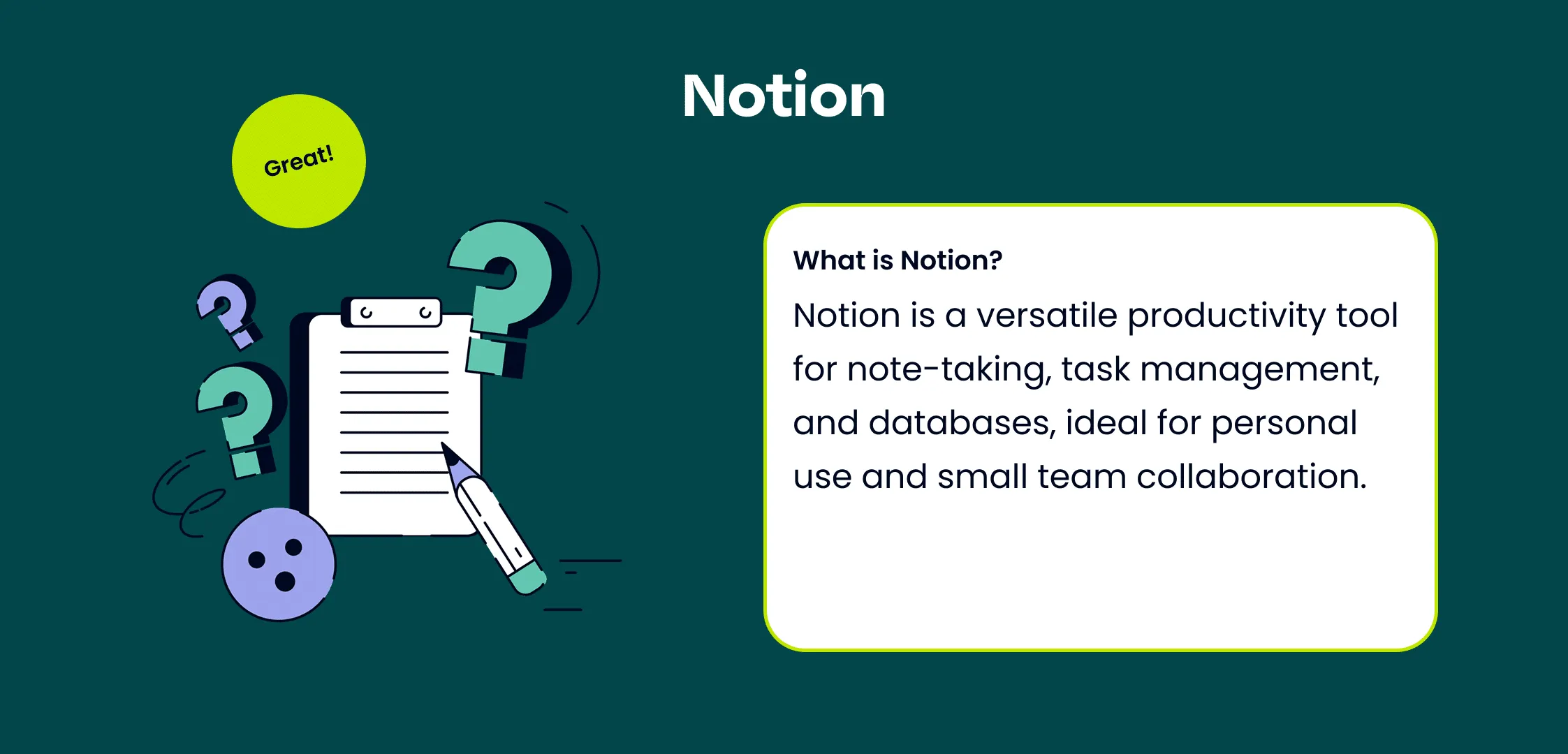
Common Use Cases of Each
Confluence Use Cases:
- Team Documentation: Centralize company policies, project resources, and process guides.
- Project Planning: Plan sprints, document meeting notes, and link Jira tasks for full visibility.
- Knowledge Management: Organize knowledge in searchable Spaces to reduce information silos.
- Cross-Functional Collaboration: Share information across teams with controlled permissions.
Notion Use Cases:
- Personal Productivity: Track personal tasks, projects, and goals.
- Small Team Collaboration: Manage projects, take notes, and build lightweight databases.
- Custom Workflows: Create flexible templates for project tracking, CRM, and content planning.
- Brainstorming: Quickly jot ideas, create kanban boards, and link documents.
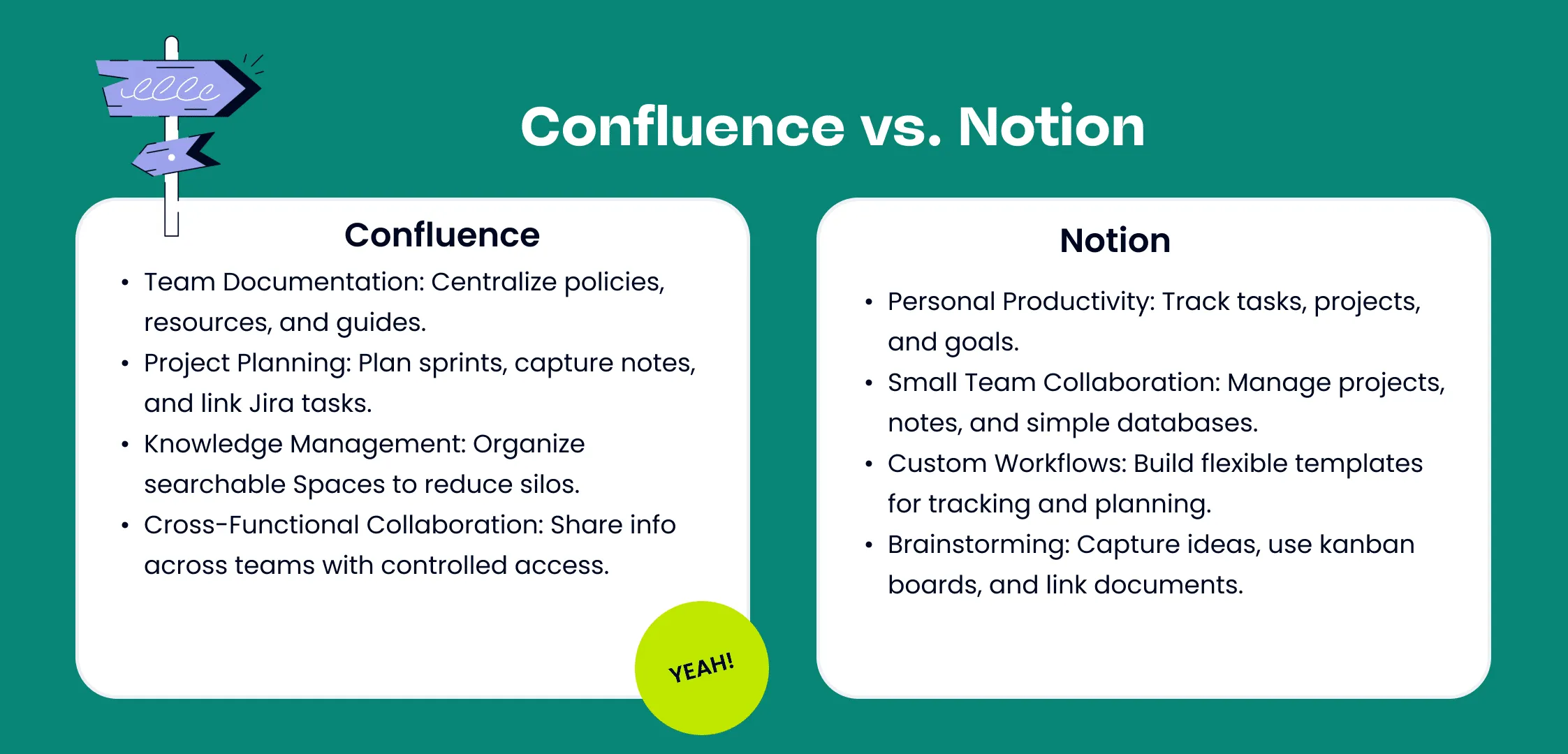
Confluence vs. Notion Feature Comparison
When comparing Confluence vs. Notion, there are several key differences in features:
Content and Knowledge Organization:
- Confluence: Offers structured pages, Spaces, and templates that support long-term knowledge retention. Its hierarchical content organization ensures information remains discoverable.
- Notion: Provides flexible pages and blocks, making it easy to create custom layouts, but it can become disorganized in large teams.
Collaboration Tools:
- Confluence: Features real-time editing, inline comments, and @mentions. Confluence Whiteboards enable teams to brainstorm visually and convert ideas into actionable tasks.
- Notion: Supports real-time collaboration, comments, and mentions, but lacks specialized tools like Whiteboards and advanced task integration with external apps.
Task Management:
- Confluence: Allows teams to link tasks directly to Jira, track dependencies, and automate workflows.
- Notion: Lets users create task boards, to-do lists, and databases, but task tracking is primarily internal without built-in project automation.
Search and Knowledge Retrieval:
- Confluence: Provides robust search, labels, and content hierarchy, ensuring that knowledge remains easy to find.
- Notion: Search is functional but less robust for large datasets, making it challenging to locate information in bigger organizations.
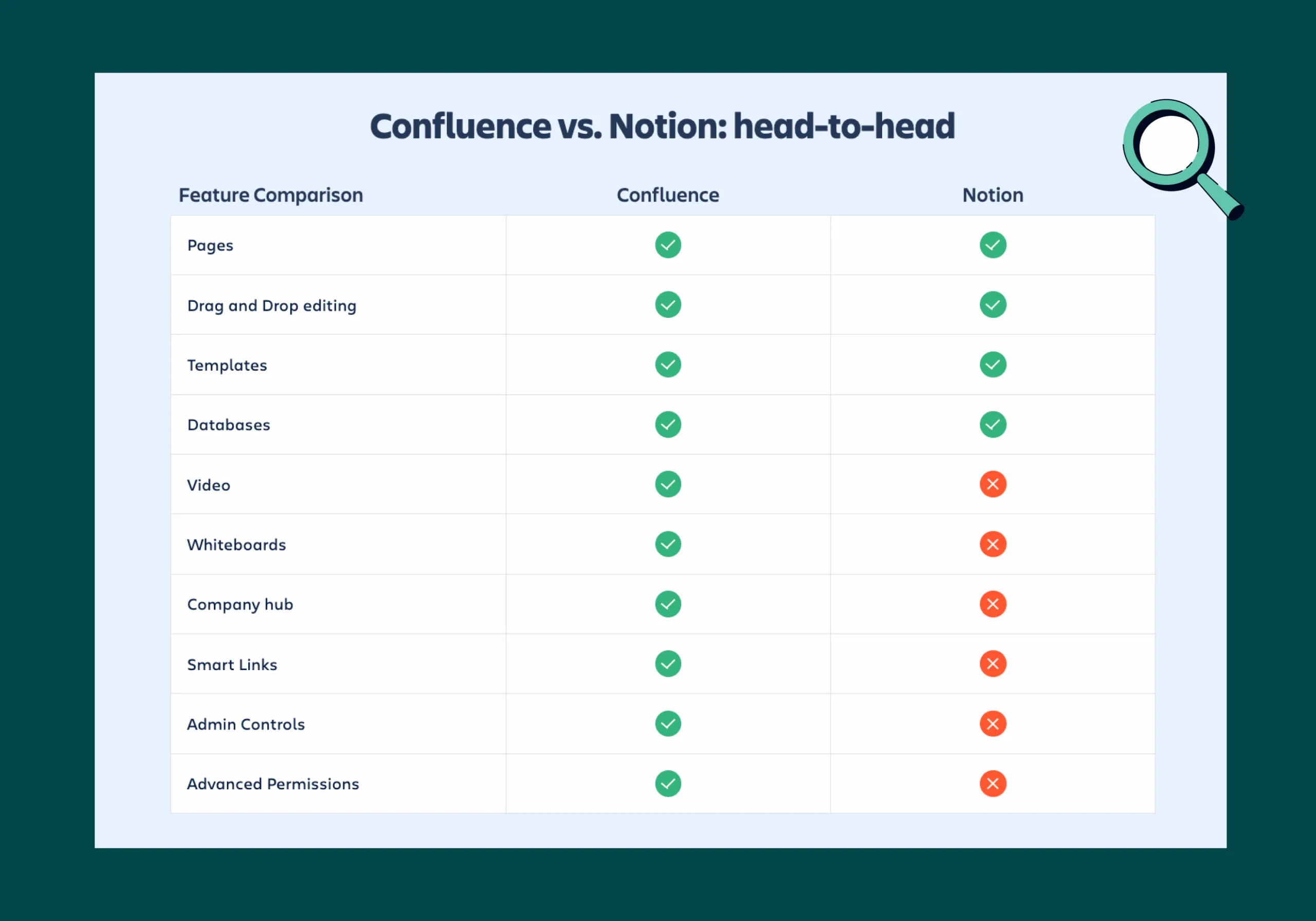
Confluence vs. Notion Integrations
Confluence Integrations:
- Native integration with Jira, enabling seamless project tracking and task management.
- Smart Links allow users to link and view work across Atlassian and third-party tools without context switching.
- Automation capabilities streamline workflows, such as notifying teams when tasks are completed or dependencies are updated.
Notion Integrations:
- Supports third-party apps like Slack, Google Drive, and Zapier.
- Lacks native integration with enterprise-grade tools, which can limit workflow automation.
- Users often rely on workarounds or third-party connectors for more advanced integration needs.
When it comes to enterprise-level collaboration, Confluence clearly provides a more connected, end-to-end solution compared to Notion.
Confluence vs. Notion Pricing
Pricing is an important factor when comparing Confluence vs. Notion.
Confluence Pricing:
- Free Plan: Up to 10 users, basic features, 2GB storage.
- Standard Plan: Around $5/user/month, includes unlimited spaces, permissions, and basic integrations.
- Premium Plan: Around $10/user/month, adds advanced analytics, automation, and priority support.
- Enterprise Plan: Custom pricing for large organizations with enhanced security, compliance, and governance features.
Notion Pricing:
- Free Plan: For individuals, limited to 1,000 blocks and basic collaboration.
- Personal Pro: Around $5/month for individuals, unlimited blocks and file uploads.
- Team Plan: Around $10/user/month, includes collaborative workspaces and version history.
- Enterprise Plan: Custom pricing with advanced admin controls and SSO.
While Notion may be more affordable for individuals or small teams, Confluence provides better long-term value for organizations that require scalability, robust integrations, and enterprise-grade security.
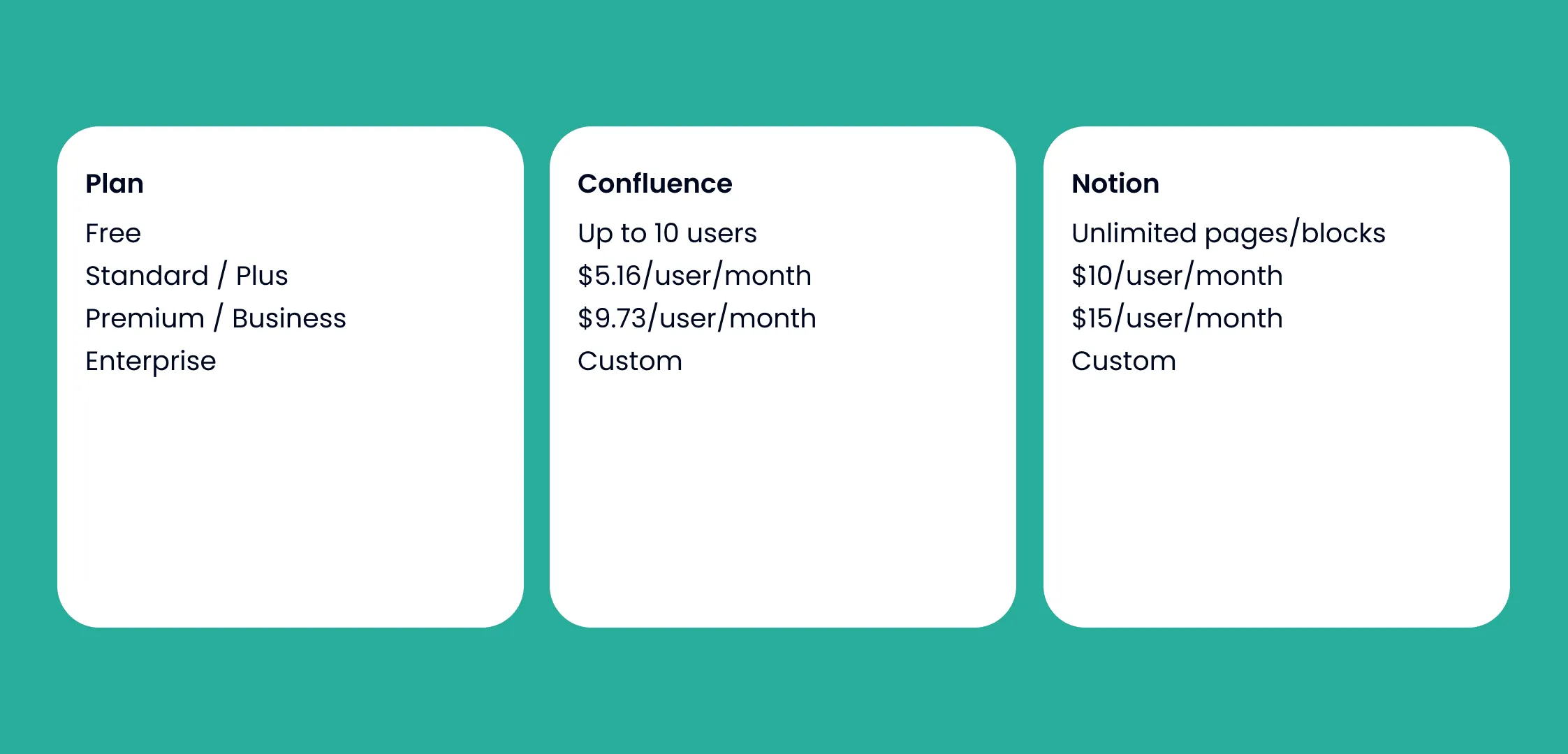
Confluence vs. Notion - What should you use?
If your team is small, flexible, and primarily focused on lightweight project tracking or personal productivity, Notion is a strong choice. Its intuitive interface and customizable workflows make it excellent for startups, freelancers, and creative teams.
However, for larger teams, complex projects, or organizations that need enterprise-level collaboration and long-term knowledge management, Confluence is the better option. It offers:
- Scalable content organization with Spaces and templates.
- Seamless integration with Jira and other Atlassian tools.
- Advanced automation and workflow capabilities.
- Secure, centralized knowledge storage that grows with your organization.
By choosing Confluence, teams can eliminate silos, enhance collaboration, and ensure knowledge is built to last—making it ideal for mid-size to enterprise-level organizations that prioritize efficiency, transparency, and team alignment.
Work with an Atlassian Solution Partner like Seibert to get even better pricing on Confluence.

